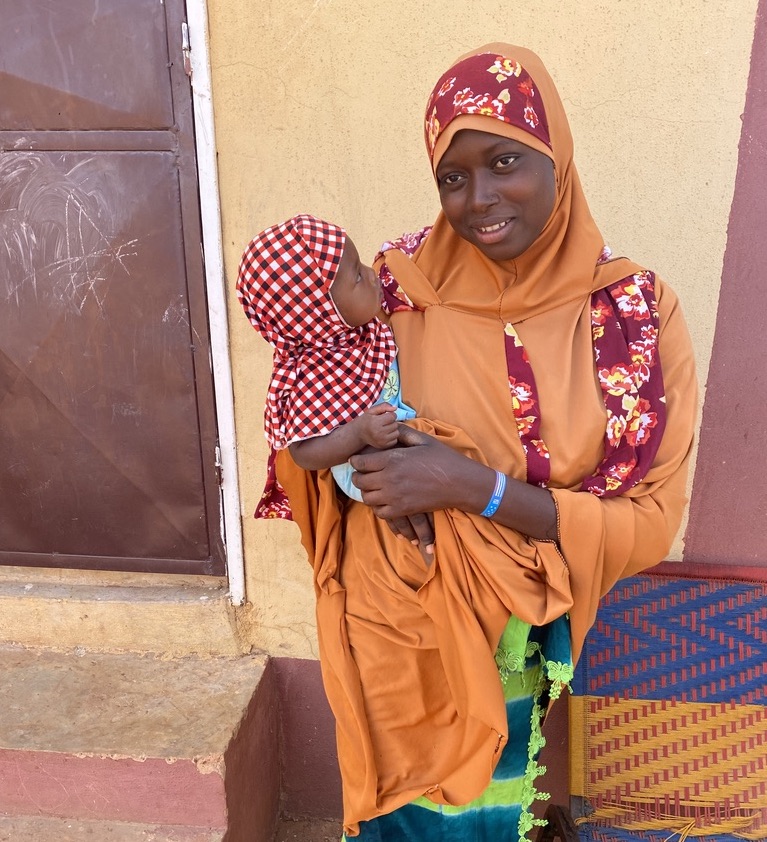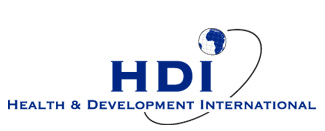A ground-breaking new intervention developed by HDI and the Niger Ministry of Health has more than halved the number of women who bleed to death after giving birth in health facilities across Niger, with results sustained for six years. This easily replicable initiative has the potential to dramatically decrease maternal mortality rates around the world.

Adama Ibrahim and her baby, born April 04, 2022, Namaro, Niger, beneficiary of HDIs ‘Initiative to Prevent Women from Bleeding to Death When They Give Birth.’ Photo by Alassoum Zeidou.
Niger’s Ministry of Health and HDI developed a new, cost effective and innovative way to rapidly prevent women from bleeding to death after they give birth. Among almost 1.4 million births over six (6) years, Niger reduced the proportion of women bleeding to death after they give birth in health facilities across the country by well over 50% within two years, and sustained that level throughout the six years reported on. The country also reduced cases of excessive bleeding by 90%.
The initiative combines relatively new technologies, misoprostol, condom tamponade, and non-inflatable anti-shock garment, with systematic measurement of blood loss and a set of traditional public health tools that constitute the Catalyst Approach to Public Health, with action steps for each phase if haemorrhage occurs. The results are stunning.
With results published in The Lancet Global Health, this could become the standard approach in many Low-and-Middle-Income Countries on several continents, with the potential to dramatically decrease maternal mortality rates around the world.
“Niger has done it and other countries can too. This method achieves rapid reductions in maternal bleeding-deaths and can prevent millions more women around the world from bleeding to death after they give birth.” said Dr Zeidou Alassoum HDIs Resident Technical Advisor in Niger.
“Reducing deaths caused by bleeding after women give birth, by more than half across an entire country within one or two years has to my knowledge never been done before. And to sustain those results year after year is truly impressive!” says Canadian professor of obstetrics who is a global leader on postpartum haemorrhage Prof. Andre Lalonde.
The initiative costs a fraction of the averted cost to individuals, families and the country from the maternal deaths and injuries. Financial benefits to the population (costs averted) are roughly estimated to be $4.5 million US dollars annually, roughly 6-8 times the annual running cost of the initiative in Niger.
Women are provided low-cost (misoprostol) tablets and instructed to take the tablets immediately after the baby is out if she did not get to the health center in time, which effectively prevents excessive bleeding for most women who just gave birth. If a woman bleeds too much anyway (>500 ml.), health workers provide a 3-Step Treatment: First a treatment-dose of the same tablets. If still bleeding after 20 minutes, Step 2 is to insert a Condom Tamponade (a condom tied on a catheter, inserted into the uterus and inflated with water up to 500 ml). If still bleeding after 6-12- minutes, Step 3 is to apply a Non-inflatable Anti-Shock Garment (NASG) and get her to a predefined hospital that can give blood-transfusions and do specialised surgery.
Background
In Niger and around the world, excessive blood-loss is the most common cause of maternal mortality. According to the World Health Organization (WHO), approximately 800 women die every day from preventable causes related to pregnancy and childbirth. Of the hundreds of thousands of women who died during pregnancy or childbirth in 2017, approximately 86 per cent lived in sub-Saharan Africa and Southern Asia.
